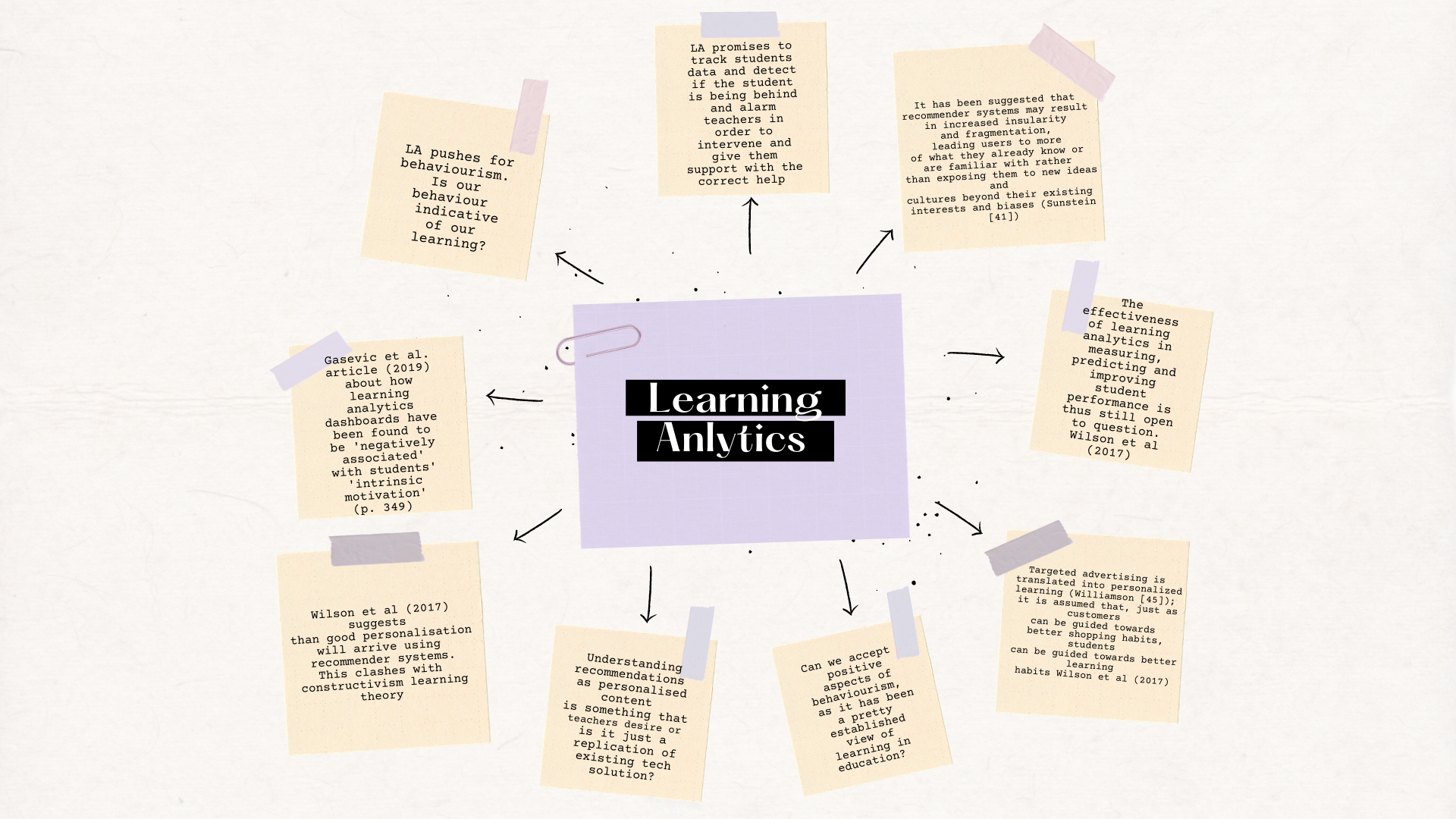
During this week I have tried to collect main ideas to support the use of Learning Analytics as well as noting the arguments against.
There is a clear agenda to push for using more and more learning analytics, it is becoming more present in institutions and education. That forces us to be careful and explore the privacy issues and pedagogical problems that its practise carries.
LA promises to transform the way educational institutions will collect and analyse data. How it will be treated by administrators, teachers and learners. It seems to offer a benefit for all the characters involved.
First, teachers will use this data to detect and predict if a student is having problems to follow the programme, LA data will help to give support and personalized treatment. It can also benefit disadvantaged groups of students and help them to achieve their learning goals. Second, students will have more agency about their learning progress, allowing them to value and understanding the whole process, and also focusing on their goal and course completion. Finally, an educational institution can use all this to claim its ability to increase productivity and effectiveness. (Enron, 2013: 237).
All of this not only brings questions about privacy, accurately gathering of data, manage and storing issues, potential risks about getting predictions and profiling students. LA can also increase the dominate power relationship of institutions/teachers over students.
Considering all of this, I can see the benefits of LA when we are talking about personalising the learning process. However, I feel discouraged when this personalization is understood as a mear recommendation, copying the e-commere. Also, interesting that the Wilson et al article gives the example of Amazon to explain this, when Amazon is one of the worst machine learning examples, showing products that you already bought or not giving really good suggestion. It seems a long way to walk yet… and it shows that translating that to education can not really be much useful (yet!).
Anyway, what I was saying, is that this hypothetical picture offered by Learning analytics si quite grey and sad from my perspective. I feel that this idea of predictions, recommendations, standards, generalisations, etc. are robbing the opportunity to be spontaneous, creative and live the “here and now”.
Taking the Twitter activity we had last week as an example, we saw how the weigh of the learning process and leading the dynamic of the activity was on Jeramy and Ben. This is is good, as well as, the fact that many conversations were happening without their knowledge. In my opinion that is also an interesting undertaken, teachers can provoke a situation that maybe they lose a little bit of control.
With automation, we probably will lose this magic moment, were something that the teacher was not anticipating, it happens and the class becomes something better than what was planned.


‘With automation, we probably will lose this magic moment, were something that the teacher was not anticipating, it happens and the class becomes something better than what was planned.’
I like the idea of the ‘magic moment’ in the classroom. But yes, to what extent does learning analytics allow for the inspiration that comes from the unplanned? Forgive me if I have talked before in our conversations about John Law’s work around mess in social science research, but he convincingly makes the point that our social world is characterised by complexity, and that we should learn to work with this mess rather than trying to impose order on it. And I think this works particularly well for education, where unscripted moments of serendipity can enliven a conversation or an activity. I wonder to what extent learning analytics might ‘iron out’ some of accidental or unplanned moment of inspiration that can make teaching and learning so memorable, in favour of something it is ‘effective’ and ‘consistent’ and ‘efficient’?